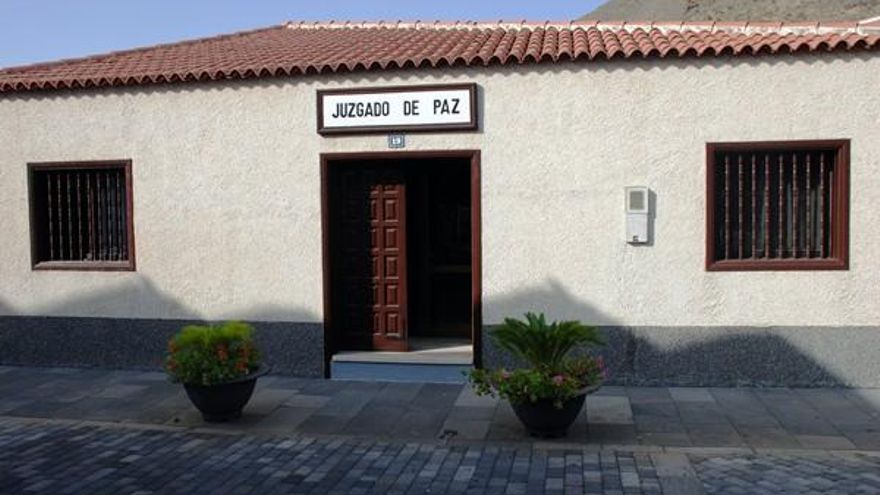
The recent reform of the judicial system driven by the so-called efficiency of justice law, which came into force on 3 April, marks a turning point for the position of justices of the peace. These professionals have been linked to essential functions in small municipalities, including the celebration of civil weddings. Three months ago, they ceased to perform this role in favour of enhanced participation in resolving minor disputes. In other words, justices of the peace stopped officiating civil weddings to return to handling offences such as thefts of up to 400 euros or conflicts between individuals, such as coercion, threats, or harassment, which involve fines or community service.
For decades, justices of the peace have been key players in the administration of justice in those municipalities lacking first-instance or investigative courts. In addition to resolving low-impact civil and criminal disputes, they were also responsible for the Civil Registry, managing registrations, deaths, and marriages. The reform now introduces structural changes, such that municipal Civil Registries become Collaborating Offices, which depletes the justices of the peace of this function.
In exchange for losing their function as officiants of civil marriages in small municipalities, justices of the peace now gain substantial powers in resolving minor conflicts. The essence of the legislative reform seeks, ultimately, greater efficiency of the entire Justice Administration structure: to relieve the ordinary courts and provide quick and accessible solutions to citizens, preventing them from being forced to travel to municipalities where judicial bodies of instruction or first instance exist.
In addition to the provisions of the new efficiency of justice law, there is a change in the civil procedure law that grants justices of the peace the authority to intervene in civil matters involving amounts under 150 euros, conciliation files in conflicts of up to 10,000 euros, and criminal conciliations, provided that the incident occurs and the parties reside in the same municipality.
This regulatory redesign clearly points to the interest in enhancing extrajudicial dispute resolution mechanisms, in line with the trend towards a more efficient, less costly, and more accessible justice system for citizens. This is, at least, the philosophy that was intended by the Ministry of the Presidency, Justice, and Relations with the Courts led by Félix Bolaños to drive these regulatory changes.
While the reform can be interpreted as an improvement in terms of efficiency, its implementation is not without difficulties. The new conciliatory role demands greater legal training and mediation skills.
Furthermore, the removal of their functions in the Civil Registry could lead to a reduction in support staff in these offices, precisely at a time when an increase in workload is expected due to the new conciliation procedures.
The justices of the peace, who are not required to hold a law degree, registered 28,538 civil matters in Canary Islands last year and resolved 28,846. Of these, 16,082 were registered in the province of Santa Cruz de Tenerife, where 16,304 cases were resolved, mostly consisting of civil summons, verbal trials, and conciliation acts. Meanwhile, in criminal matters, the peace courts in the Archipelago dealt with 10,080 cases, of which 5,445 were registered in the western province, and 5,477 were resolved.
Justice of the Peace in El Rosario
Jacinto Correa has been the justice of the peace in El Rosario since 2020, and the Town Hall, where he also served as a councillor, renewed his mandate at the end of last year. He states that the peace courts “have become void of content” regarding the responsibilities in the Civil Registry. To implement the new regulations, “technical resources must be provided to the peace courts because processes are expected to take place via videoconference, as well as access to centralized IT support, but so far no budget has been allocated.”
Correa states that since 5 April, they no longer celebrate weddings, which were free, and citizens now rely on the town councils or notaries. Some municipalities charge fees while others do not. For instance, in El Rosario, the fee for a civil union is 80 euros, a figure very far from the average cost of notaries, which ranges from 600 to 700 euros, or prenuptial agreements at around 1,500 euros.
In El Rosario, the elimination of civil weddings has another consequence. The justice of the peace used to officiate the marriages of inmates from the Tenerife II prison. Now they will have to dig into their pockets or go to the Civil Registry in Santa Cruz to which the municipality is attached.
Correa is a social graduate, although he is already retired. He knows many of his neighbours, which is a fundamental quality for successfully managing conciliations. In fact, most of them “occur due to disagreements over property boundaries, pieces of land inherited from parents to children without being recorded in deeds or inheritances.”
Justice of the Peace in Garachico
Ana Carolina Velázquez has been the justice of the peace in Garachico for five years. The full entry into force of the new regulation on 1 July still raises questions about “how we will operate and what volume of cases we will have regarding requests for criminal records or certificates of offences.” “The role of the justice of the peace has ceased to have responsibilities in civil registries, and we now assume justice roles.” To achieve this, these offices must have the technical means to take statements, but “we still have no information.”
Velázquez used to celebrate around 20 to 30 weddings a year, while conciliations now occupy most of her activity.
















